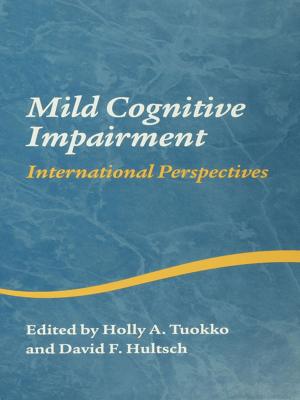Global Reconstructions of Vocational Education and Training
Nonfiction, Reference & Language, Education & Teaching, Educational Theory, Adult & Continuing Education, Higher Education| Author: | ISBN: | 9781134914227 | |
| Publisher: | Taylor and Francis | Publication: | April 8, 2016 |
| Imprint: | Routledge | Language: | English |
| Author: | |
| ISBN: | 9781134914227 |
| Publisher: | Taylor and Francis |
| Publication: | April 8, 2016 |
| Imprint: | Routledge |
| Language: | English |
Vocational education and training (VET) can be difficult to define since it is set in a turbulent and volatile environment marked by national and regional specificities. It can be delivered at different levels and by a variety of providers, including community colleges, colleges of further education, polytechnics and universities, as well as, importantly, private providers. This collection reflects the shifting and often messy conceptualisations of VET. On one level VET can be associated with the education and training of craft/skilled workers, or of those who are being prepared for a particular occupational destiny and specific position in the labour market. In this instance, notions of skill, knowledge and dispositions are significant. On another level, it can raise questions over power and class formation, in addition to the way in which these are mediated or intersect with race and gender. Moreover, there are important political questions addressing the significance of VET in furthering social cohesion and economic regeneration in times of austerity when neoliberalism is hegemonic. The chapters in this book are not all of a piece, but each in its turn raises important questions about VET, its relationship to the economy, as well as its global setting.
This book was originally published as a special issue of Globalisation, Societies and Education.
Vocational education and training (VET) can be difficult to define since it is set in a turbulent and volatile environment marked by national and regional specificities. It can be delivered at different levels and by a variety of providers, including community colleges, colleges of further education, polytechnics and universities, as well as, importantly, private providers. This collection reflects the shifting and often messy conceptualisations of VET. On one level VET can be associated with the education and training of craft/skilled workers, or of those who are being prepared for a particular occupational destiny and specific position in the labour market. In this instance, notions of skill, knowledge and dispositions are significant. On another level, it can raise questions over power and class formation, in addition to the way in which these are mediated or intersect with race and gender. Moreover, there are important political questions addressing the significance of VET in furthering social cohesion and economic regeneration in times of austerity when neoliberalism is hegemonic. The chapters in this book are not all of a piece, but each in its turn raises important questions about VET, its relationship to the economy, as well as its global setting.
This book was originally published as a special issue of Globalisation, Societies and Education.















